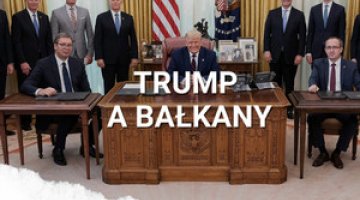Protests in Bosnia and Herzegovina
Protests in Bosnia and Herzegovina (BiH) against the inefficient administration and the deteriorating socio-economic situation have been ongoing for two weeks. Parliament has been blocked in Sarajevo, and thousands of people have also held demonstrations in other cities, including Tuzla and Mostar. The protests were triggered on 5 June, when the parliament of BiH rejected the act regulating the procedure for regaining the personal identification number. MPs from the Serb part of the country did not agree to this. They demanded that the personal numbering system adopted should correspond to the internal division of the country, and thus be proof of the separate nature of Republika Srpska. The lack of new regulations has been impeding access to healthcare and travel documents for new-born children. The protests were additionally fuelled by the death of a girl who could not be transported legally to Belgrade to undergo specialist surgery.
Commentary
- Although the draft act was rejected by Bosnian Serbs, and most of the protesters are Bosniak residents of Sarajevo, the demonstrators have not been using any national slogans, and the protests are not anti-Serb. Groups of demonstrators from Republika Srpska and Zagreb have also come to Sarajevo. The demonstrations are spontaneous. They have not been organised by any political parties, and the Bosniak groupings have not succeeded in transforming the protests into an action of support for them. Should more Bosnian Serbs and Croats join the protests, a social movement could emerge which could split the ethnic divides, since these divides have been conserved by the system solutions adopted in Dayton. This would pose a threat to the nationalist parties, which currently predominate in the country’s establishment. For this reason, Croat and Serb MPs have been making attempts to portray the protests as hostile actions waged by Bosniaks against their fellow-citizens – Serbs and Croats – which proves the need to preserve the autonomy of the ‘constitutional nations’ in the political system of BiH.
- The public have been strongly dissatisfied with the operation of public institutions in Bosnia and Herzegovina since the end of the civil war in 1995. The central government has been unable to resolve the most pressing socio-economic issues. Furthermore, they have been incapable of using a great deal of the pre-accession funds granted to BiH. The accession of neighbouring Croatia to the EU has shed more light on the inefficiency of the state administration in BiH. It is unclear whether BiH is prepared to face the problems which are expected to emerge on 1 July on the country’s longest border. These include the adjustment of border checkpoints and procedures which enable food exports. It became possible to break the resistance of the Serb member of the presidium of BiH and accept the border agreement with Croatia only as late as 18 June.
- The demonstrations in Bosnia and Herzegovina will be used as an argument for making constitutional changes. The inefficient political system and the resulting administrative inertia, especially at the central level, has been giving rise to public dissatisfaction and also to BiH being criticised in the European Union. The division of the country based on ethnic criteria affects the voting system and discriminates against citizens of other ethnic backgrounds than the ‘constitutional nations’. Due to this, the EU Commissioner for Enlargement, Stefan Fule, has stated that the EU will recognise the results of the parliamentary elections scheduled for spring 2014 on condition that the constitution has been amended.
Cooperation: Mateusz Gniazdowski




